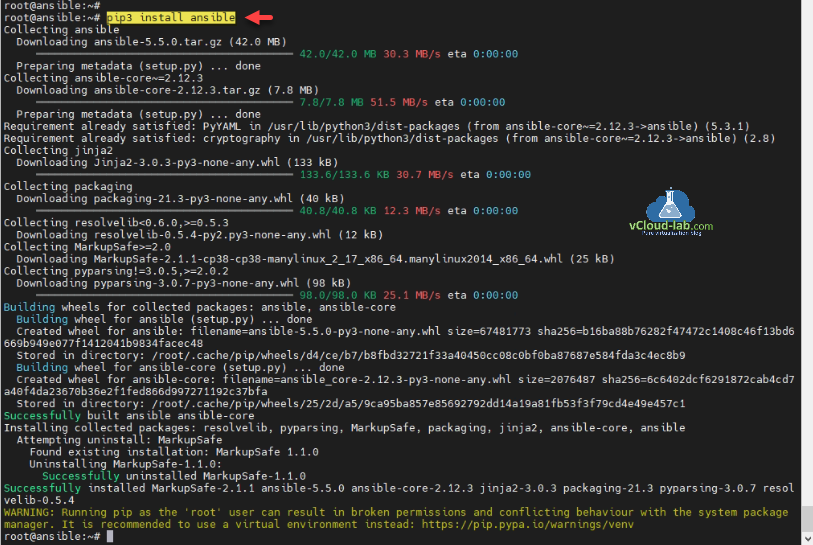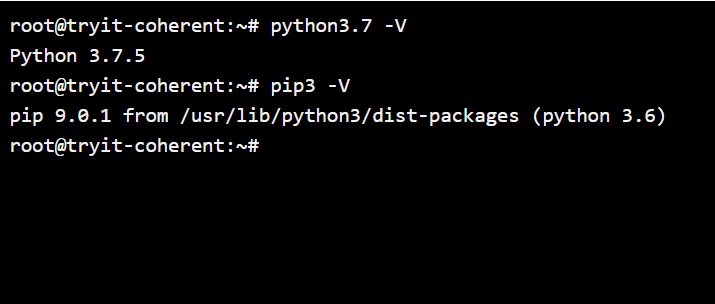

This way, we don't need to worry about impacting other projects of Python.
#Ubuntu pip3 install install#
The virtual environments of Python permit us to install the modules of Python in a separated location for a particular project, instead of being globally installed. We should use pip only in a virtual environment. We should globally prefer pip for installing a module only when there's no deb package for that particular module. The packages of Python 3 are pre-fixed with python3- and the packages of Python 2 are pre-fixed with python2. When globally installing a module of Python, it is highly suggested to install the deb package of the module using the apt tool because they are tested to implement properly on all Ubuntu systems. Several users are motivated for switching to Python 3. Starting from the 20.04 version of Ubuntu, Python 3 is contained in the base system installation, and on the other side Python 2 is present for installation through the Universe repository. Python is available in two versions including Python 3 and Python 2. With the 6.0 pip version publication, the naming process of the version was switched for having the version in the X.Y format and then removing the preceding 1 from the label of the version. The Python Packaging Authority (short for PyPA) was developed for taking over the virtualenv and Pip maintenance from Bicking which is led by Jannis Leidel, Brain Rosner, and Carl Meyer in 2011. The title is a recursive composition for "Pip Installs Packages" according to Ian Bicking himself.

Pip was selected as a fresh name from one of many recommendations that the creator got on his blog post. In 2008, Pip was first announced as pyinstall by Ian Bicking (the virtualenv package creator) as a substitute to easy_install. Also, we will walk through the installation basics and otherwise handle Python packages using pip. In this article, we will explain how we can install pip for Python 2 and Python 3 in the 20.04 version of Ubuntu.
#Ubuntu pip3 install series#
The 2.7.9 and later versions of Python (on the series of python2), and the 3.4 and later versions of Python by default contain pip.
#Ubuntu pip3 install software#
Also, it enables us to install more than one package and module of Python for our Python projects if we are software developers. The uses of Ubuntu can easily install several packages using the Python Package Index by using pip.

Pip is known as a package management system that implements with the command line. Pip can also be described as an abstraction for "Pip Installs Packages". This process makes it convenient for installing and managing all software packages of Python, like those mentioned in the Python Package Index (short for PyPI). If installing any package, pip will first resolve the dependencies, identify if they are installed already, after that installs them if they aren't installed on our system. The pip is used to install and manage Python software packages. We can download, search, and install many packages using Python Package Index (short for PyPI) and other indexes of the package with pip. Pip can be described as a tool to install the packages of Python. Next → ← prev Install pip in Ubuntu What is a pip?


 0 kommentar(er)
0 kommentar(er)
